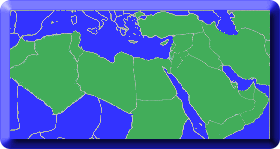
Topics in Middle Eastern and North African Economies
Document Type
Article
Publication Date
5-1-2014
Journal Title
Topics in Middle Eastern and North African Economies
Volume
16
Publisher
Middle East Economic Association and Loyola University Chicago
Abstract
Since its independence in 1962, Algeria, as an oil producing country, undertook the construction of a socialist economy supported by heavy industrialisation and substantial investment in human capital. This strategy of development was based on state-led industrialization, after it nationalized almost the whole economy in 1966. However, this policy focused on establishing large state enterprises and investing heavily in the public sector while not allowing any significant role for the private sector. This rapid industrialization resulted in severe inefficiencies in the productive capacity of various industries and generated fiscal imbalances in the mid-1970s, which constrained Algeria’s ability to continue its expansionary industrial policy. The reversal of oil and gas prices in 1986 made the situation even worse and the state-owned industrial sector remained a heavy burden for the government because of its low productivity and lack of competitiveness. Under these troublesome and shaky political and economic atmospheres, economic reforms was introduced in the 1990s in order to change the Algerian business context from one of state-centered, control orientation, to a free, open market orientation. Furthermore, privatization was imposed on the country by the international monetary fund (IMF) supported adjustment program, as one of the main pillars of these economic reforms, and the right tool to rescue the ill functioning economy and make local industries more efficient and globally competitive. Despite a number of years of economic reform and adjustment, the privatization process in Algeria never really took off, and the country’s industrial efficiency is still relatively weak. Rapid decline and deindustrialization characterize the period from 1980 to the present. However, attempts at industrial reforms have not yet started to show any signs of improvement in its performance. Nonhydrocarbon exports account for a small share of total exports (less than 5 percent) and the oil sector remains a dominant feature of Algeria’s economy, making it vulnerable to changes in world oil markets.
Identifier
2334-282X
ISSN
2334-282X
Recommended Citation
Begga, Chérif and Merghit, Abdelhamid, "Attempts to Industrial Reforms in Algeria: Do they fit the Logic of Globalization?". Topics in Middle Eastern and North African Economies, electronic journal, 16, Middle East Economic Association and Loyola University Chicago, 2014, http://www.luc.edu/orgs/meea/
Creative Commons License

This work is licensed under a Creative Commons Attribution-Noncommercial-No Derivative Works 3.0 License.
Copyright Statement
© 2014 the authors



Comments
Presentation of the articles in the Topics in Middle Eastern and North African Economies was made possible by a limited license granted to Loyola University Chicago and Middle East Economics Association from the authors who have retained all copyrights in the articles. http://www.luc.edu/orgs/meea/volume16/meea16.htm